Recently, I came across a post on social media listing all the things the person found wrong about Austria, from unfriendly neighbours to fines for using your phone while cycling to the absolute need to do everything by phone rather than read an email. I smiled, remembering saying so many of the issues I myself suffered with when I arrived here. I remember being a little shell-shocked and everything seeming wrong and incomprehensible- and not just because it was in German. I said “well, in [my home country], we do this…” or “well, it doesn’t work like that where I’m from”.
But here I am, about to leave this country- and now I find myself defending it against such attacks. Call it pre-emptive nostalgia in the face of the imminent move but I can’t help loving Austria and the things that it has taught me to appreciate. I’m talking beyond the usual scenery, food, classical music; I mean the things that make you stop and be grateful for where you are.
So it is time to write my Love Letter to Austria.
6 Top Reasons to Love Living in Austria
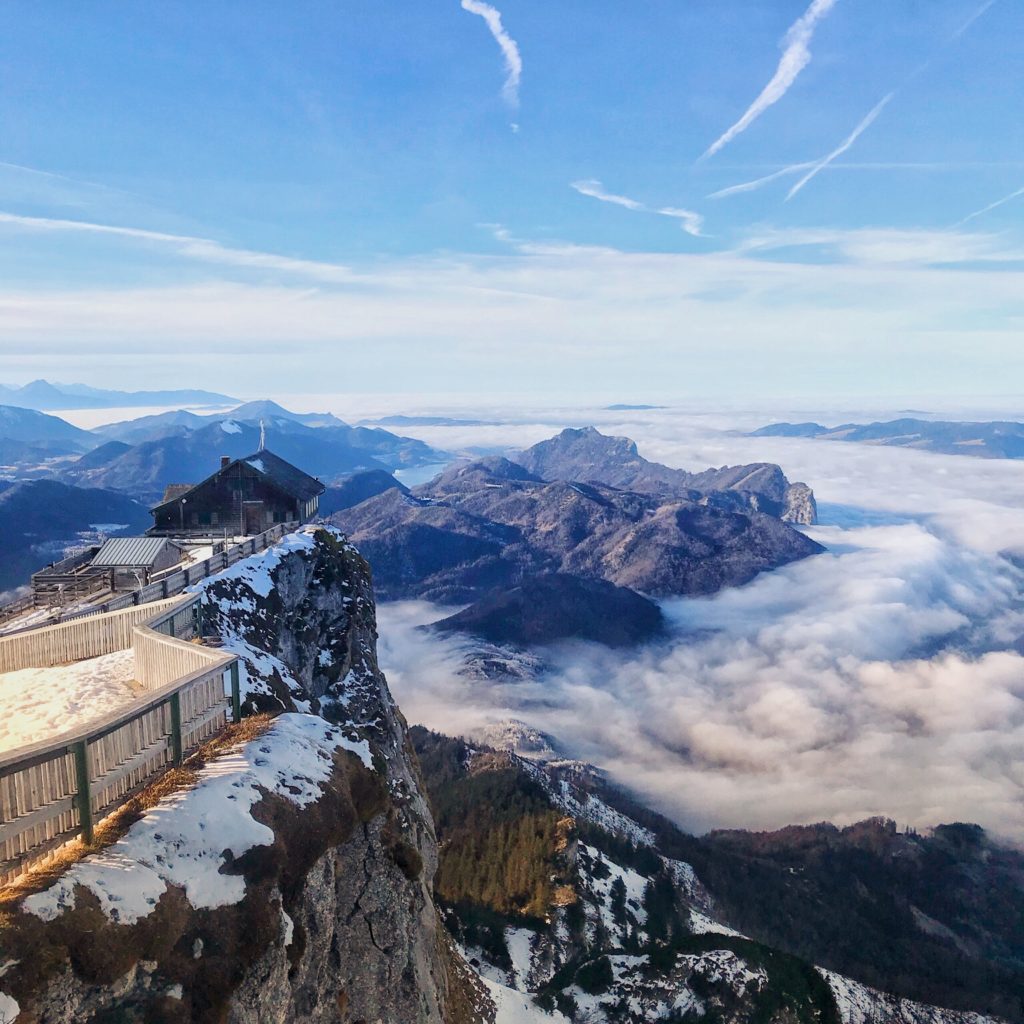
Public Transport
How can you not fall in love with a place where it is possible to hop on a bus or a train with your skis or climbing equipment in tow? I have used the buses to hike to remote mountain huts, to visit a friend for a snow-shoe, and to get back in the middle of the night from the slopes. To the incomprehension to my family living in the States, I have not owned a car while living here. Public transport links and cycle lanes (should I have a separate point to cover the great cycling infrastructure?) meant a car was just not necessary.
This public transport comes at what I would say is a reasonable price for the clean, efficient system. I recall the pain of not having pre-booked a train in England and paying horrendous amounts of money for the pleasure of an over-crowded, delayed, out-of-date carriage. Here, armed with my Vorteilscard and the OEBB or Salzburg Verkehr apps, everything is seamless as I make my 2 minute connection, slip into my seat by the huge windows, and watch the mountain roll by…
Access to the Outdoors
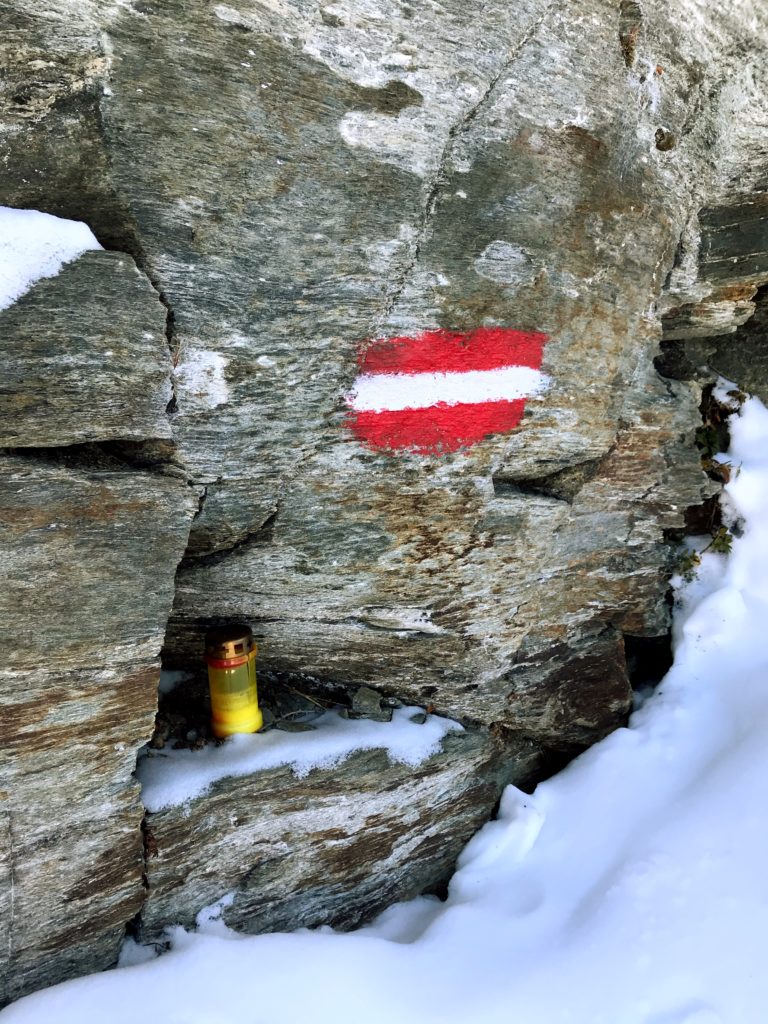
When I have smoothly arrived at my trailhead, the mountains that greet me are so wonderfully accessible. I considered myself relatively outdoorsy before moving here. But in the British Isles, that levels of outdoorsy required me to be able to read maps, carry a compass and rain jacket at all times, and have some experience before venturing into the Great Outdoors.
Here, the trails are all clearly signposted (helpfully colour-coded blue-red-black for easy-medium-hard) and painted blazes show you the way. I rarely meet an Austrian who carries a paper map in the mountains. Along your hike or at the top of the mountain, there will always be a welcomingly warm mountain hut with beer, salty-stodgy food of all kinds, and hot chocolates topped with cream. Next time I’m hiking in Wales, I will look at my cereal bar with longing for what I had.
Of course, there are objections to these measures: those who hate paint on all the rocks or point out the environmental cost of helicoptering supplies up a 3000m peak. There is also still a need for some basic level of sense in terms of not attempting a hike beyond your skills or paying attention to the weather conditions. Yet I can’t help feeling that the outdoors are more accessible here and that can only be a good thing.
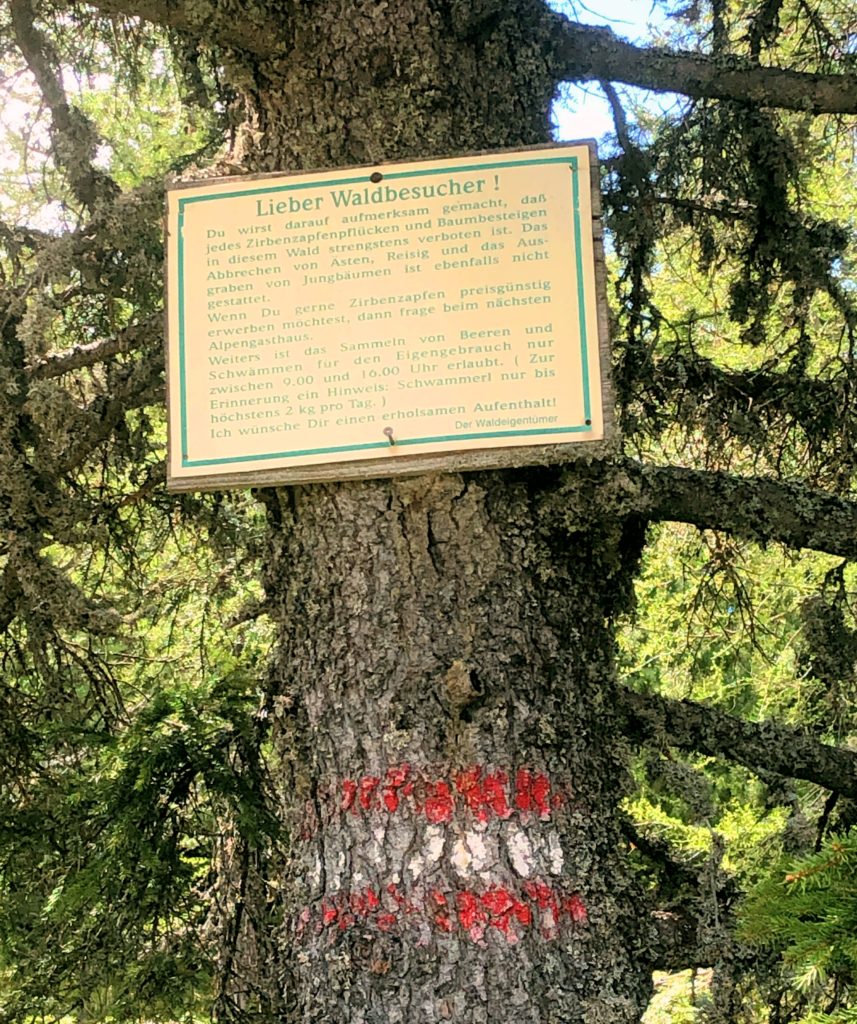
Eating in Season
So many times, I traipsed around multiple supermarkets trying to find butternut squash in February. Then I realised: everything is sold seasonally here. It took a little more complaining before I finally recognised that this seasonality of supply is brilliant. Having everything available at any time of day made me value it less and created a disconnection between me and my environment. I used to buy fruit from thousands of miles away without even thinking about it. Now, I think twice about what we eat and try to buy local and in season.
This attitude brings a certain joy to everyday life. I rejoice when I see kale covered in February frost in the market or the first strawberries appearing with the summer sun. Asparagus stalls pop up on the roadsides in May and when the leaves turn, it’s time for eierschwammerl (wild mushrooms), kürbis (pumpkin) and maroni (chestnuts).
I am still somewhat confused when I can’t find broccoli in the supermarkets for some unknown supply reason but I do now enjoy my local, seasonal and tastier treats.
The Turn of the Seasons and Small Festivals
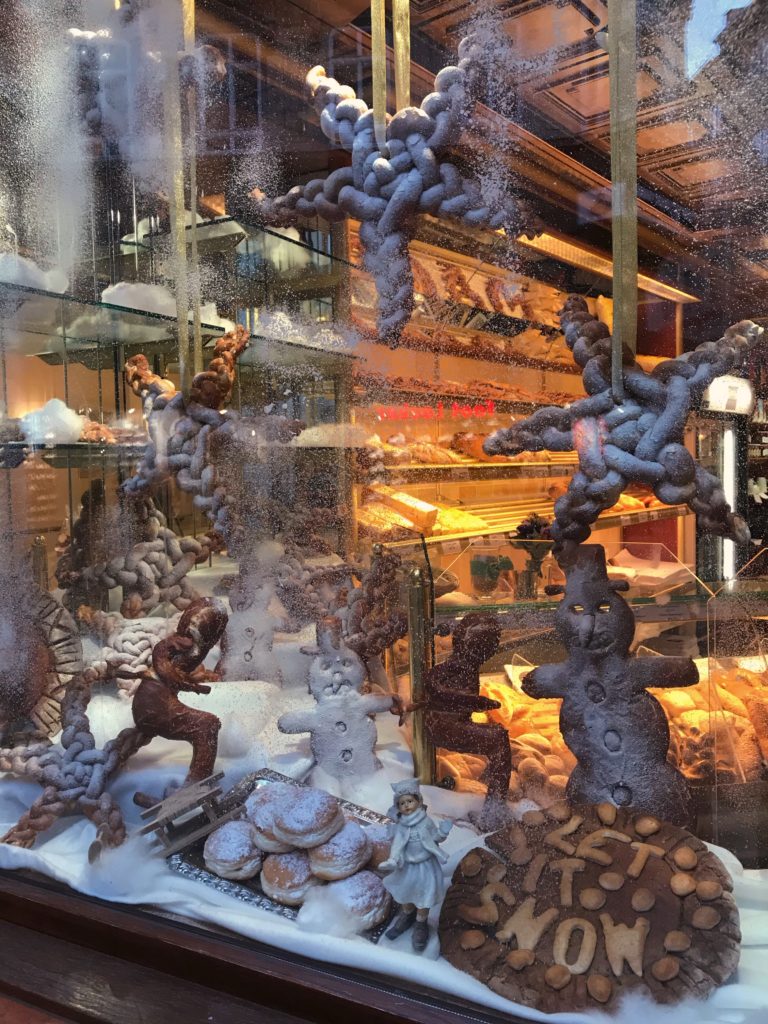
The recognition of seasonality extends beyond food supply. There’s a rhythm to the year’s cycle that is celebrated here, beyond the shops going from Christmas decorations to spring bunnies to Halloween masks and round again. It’s a cycle that reminds me of Ireland, for its connection to the land and the natural world.
I feel it everywhere I go: I cycle past homemade scarecrows sitting on hay-bales for Bauernherbst, I hear the bands practising for Rupertitag, and I drink to the raising of the Maibaum in May. I watch the bakeries’ displays change from krapfen (doughnuts) to golden summer sun loaves or admire the collection of wooden Kripperl (Nativity scenes) in village squares, lit by twinkling Christmas lights.
Everyone seems to be aware of this rhythm and its traditions. We cycled by a friend on Hellbrunner Allee while going to have a takeaway lunch at a fish shop. “Oh, because it’s Ash Wednesday?” she remarked. I couldn’t imagine a sentence that illustrates my point here more.
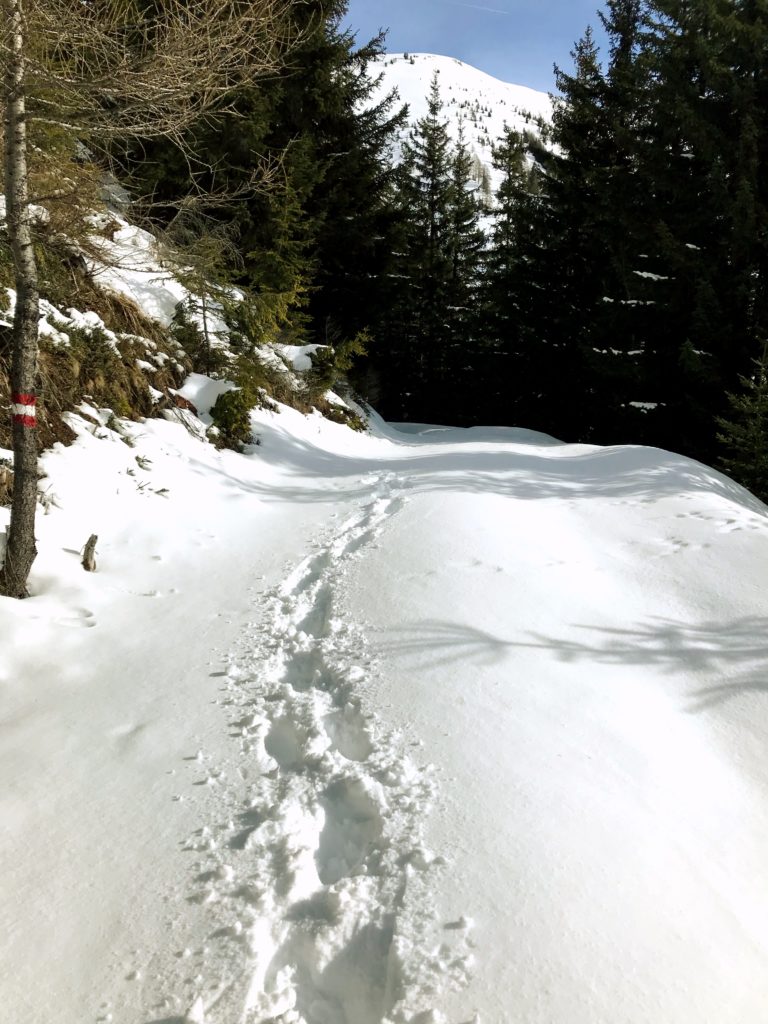
Adaptations to the Weather
I like how people dress for the weather here, and the adaptions that are made to accommodate it. I love that it is acceptable to walk around town with a ski jacket on and that everyone has sensible boots to wear in the snow. I see babies wrapped up in blankets and children in full body waterproofs enjoying rolling in the snow.
My most favourite thing are the Dachlawine protective measures. I was so bemused by the long planks of wood sticking out at an angle over pavements, forcing me to walk around them… until I learnt that avalanches of snow from the roofs above me were a real danger. It felt like unlocking a secret when the signs “Vorsicht-Dachlawine” suddenly became understandable: “Caution-Roof Avalanche”. And I was glad that I had been superstitious enough not to walk under those pieces of wood!
The People

Now this is a controversial one: many an ex-pat in Austria has complained about over-bearing neighbours, rude service or sullen farmers. I’m here to argue otherwise. I make the point in another post that people may just be different to how they are in your home country but that doesn’t necessarily make them rude.
Once I found my words in German, things certainly opened up. Shop assistants were more willing to help. When I stopped searching the Internet and spoke to a person on the phone or in person, office administrators went out of their way to solve my issues. It’s all about actually speaking together with another person here, not filling out another form online.
Most of all, in the mountains and the alms, I met the most wonderful, welcoming souls. There exists the “Gipfel-Du”: above 1000m, everyone is “du”, the informal way of addressing another in German, signifying a disregard to all forms of societal hierarchy that may exist below in normal life.
What I also enjoy is the old-fashioned, traditional style of politeness that exists here. When a person enters a doctor’s or dentist’s waiting room, they say a “Grüß Gott” to the room and give an “Auf Wiederschauen” to all when they leave the surgery. Children never fail to politely say hello to me if I pass them on the paths. These are the little drops of oil that soothe a society. Embrace this mountain-style, direct yet polite way of being.
So that’s it. Is it time to say a goodbye to this wonderful place?
Not quite yet. Time for one more hike and plate of Kaiserschmarrn yet.